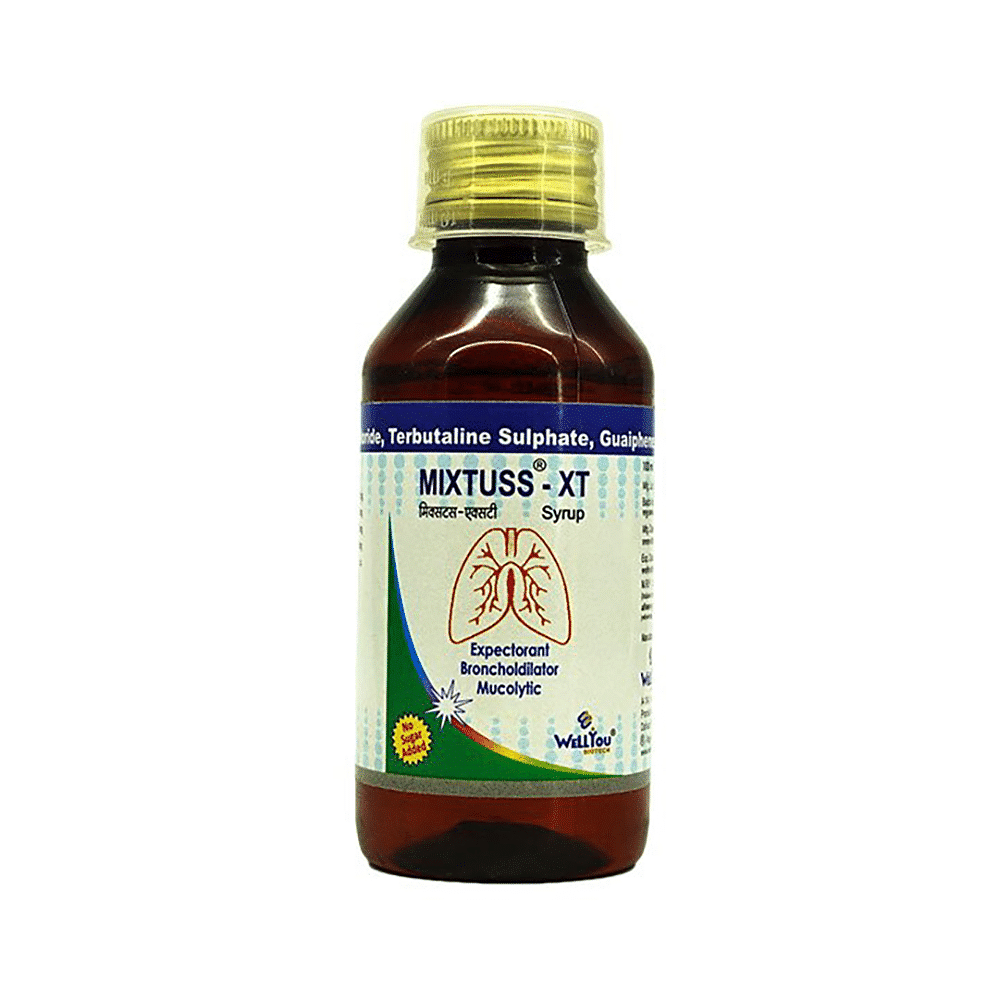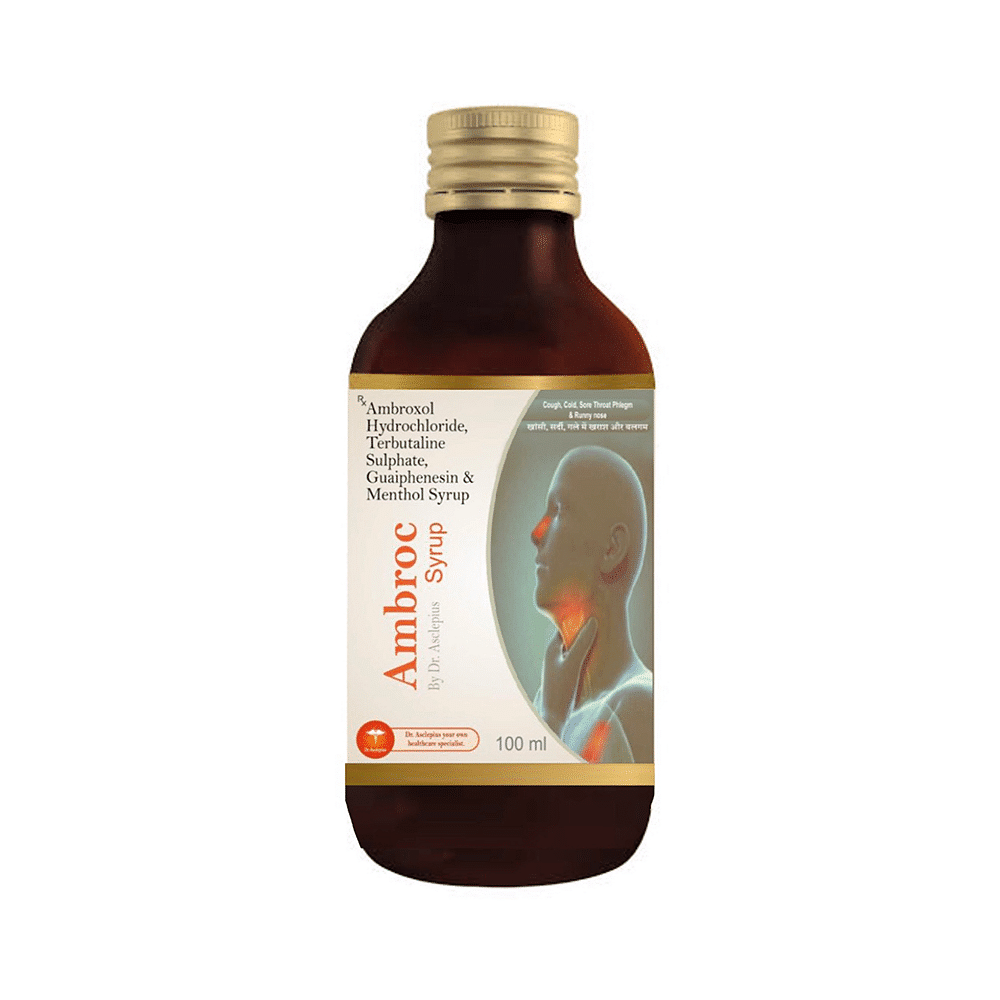
Winodryl Syrup
Manufacturer
Alde Medi Impex Ltd
Salt Composition
Ambroxol (15mg) + Guaifenesin (50mg) + Menthol (2.5mg) + Terbutaline (1.25mg)
Key Information
Short Description
Winodryl Syrup is a combination medicine used to treat cough. It thins the mucus in the nose and windpipe, making it easier to cough out. This medicine also relieves throat irritation and provides cooling sensation.
Dosage Form
Syrup
Introduction
Winodryl Syrup is taken with or without food in a dose and duration as advised by the doctor. The dose you are given will depend on your condition and how you respond to the medicine. You should keep taking this medicine for as long as your doctor recommends. If you stop treatment too early your symptoms may come back and your condition may worsen. Let your doctor know about all other medications you are taking as some may affect or be affected by this medicine.
Directions for Use
Take this medicine in the dose and duration as advised by your doctor. Check the label for directions before use. Measure it with a measuring cup and take it by mouth. Shake well before use. Winodryl Syrup may be taken with or without food but it is better to take it at a fixed time.
Safety Information
Side Effects
nausea diarrhea vomiting stomach discomfort headache rash tremor and increased heart rate
Alcohol Warning
It is not known whether it is safe to consume alcohol with Winodryl Syrup. Please consult your doctor.
Breastfeeding Warning
Information regarding the use of Winodryl Syrup during breastfeeding is not available. Please consult your doctor.
Pregnancy Warning
Winodryl Syrup may be unsafe to use during pregnancy. Although there are limited studies in humans, animal studies have shown harmful effects on the developing baby. Your doctor will weigh the benefits and any potential risks before prescribing it to you. Please consult your doctor.
How it works
Winodryl Syrup is a combination of four medicines: Ambroxol, Guaifenesin, Menthol and Terbutaline.
Quick Tips
Winodryl Syrup relieves cough associated with bronchitis bronchial asthma emphysema and other broncho-pulmonary disorders. It may cause dizziness and sleepiness. Do not drive or do anything that requires mental focus until you know how it affects you. If you are diabetic, monitor your blood glucose regularly while taking this medicine. Inform your doctor if you have a history of thyroid or heart disease. Stop taking Winodryl Syrup and inform your doctor if your cough persists for more than 1 week tends to recur or is accompanied by a fever, rash or persistent headache.
Related Medicines

Medrex AM Syrup

Coughgril AT Syrup

Mixtuss-XT Syrup

Fluvant A Syrup

Histoden Syrup

Ambroc Syrup

Zesituss XP Syrup

Oscocuf A Syrup

Zumroil Syrup

Arolin-XN Syrup
Frequently asked questions
Is taking a higher dose than recommended for Winodryl Syrup effective?
No, taking more than the recommended dose of Winodryl Syrup may not provide additional benefits but can increase the risk of experiencing side effects. If you're not seeing relief from symptoms while using the medication, consult with your doctor to discuss alternative options.
What type of cough is treated by a prescription for Winodryl Syrup?
Winodryl Syrup is typically prescribed to treat coughs accompanied by excessive mucus secretion. If you're experiencing symptoms such as persistent coughing, congestion, or difficulty clearing your airways, consult with your doctor to determine the best course of treatment.
Are there any situations where Winodryl Syrup should not be used?
It is not recommended to use Winodryl Syrup if you have a known hypersensitivity to its components. Additionally, individuals with pre-existing heart conditions such as ischemic heart disease, significant risk factors for ischemic heart disease, or gastric ulceration should avoid using this medication.
How should I store and dispose of Winodryl Syrup?
To maintain the quality and effectiveness of the medicine, store Winodryl Syrup in its original container, tightly closed. Follow storage instructions provided on the packaging or label for optimal conditions. When disposing of unused medication, ensure it is not accessible to children, pets, or other individuals.


